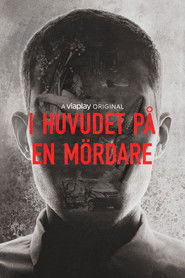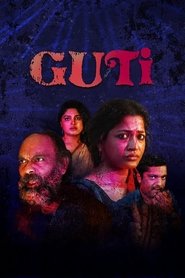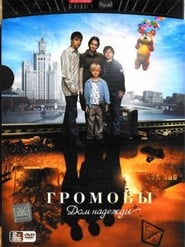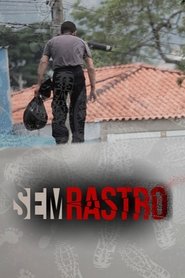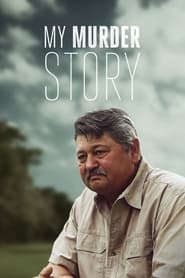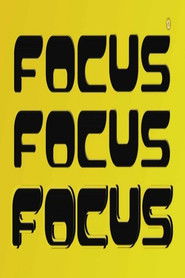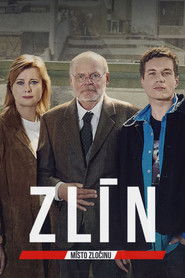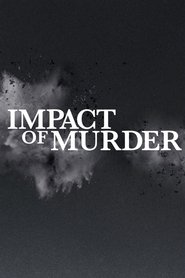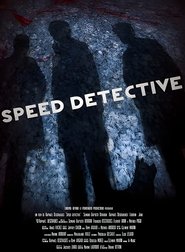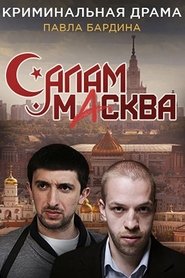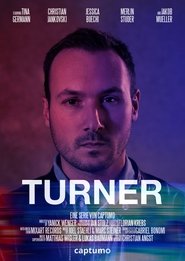Popular Crime TV Series - Page 405
-
Troje pod przykrywką
2021
Troje pod przykrywką
2021
-
I Was a Teenage Felon
2020
Former criminals tell true stories of how they went from being average American kids to becoming massively successful outlaws. -
I huvudet på en mördare
2018
"In the Head of a Killer" digs deep into the psyche of Sweden's worst violent offenders. About their childhood, what signs were there, what drove them to sexual violence and murder? -
Guti
2023
Guti
2023
star 7Sultana, A drug carrier and a mother, is associated with a local drug trafficking network for the last few years. During this period, Sultana has earned a lot of money and wealth but in return she has lost her relationships, faith and hope. There is no way to escape, yet escape is the only way for Sultana. -
The Gromovs. House of Hope
2008
star 6.2After burying her mother, Nastya Gromova, along with her brothers, comes to her grandmother's house, in the small town of Khimki near Moscow. But the house is occupied by their distant relative, Lucy, who feels like an absolute mistress there and is not going to share her home with anyone. New challenges await the Gromovs... -
Sem Rastro
2017
Sem Rastro
2017
-
My Murder Story
2020
My Murder Story
2020
A look at those left in the wake of a murder as they dig for the truth among the unexpected and unnerving secrets of the murdered loved ones. -
Contraband: Seized at the Airport
2024
Follows Dept of Homeland Security officers at five different airports across the country, from San Francisco, Detroit, Newark, Atlanta, and Honolulu, as they search for contraband both leaving and coming into the US. -
Focus
2023
-
Místo zločinu Zlín
2026
Místo zločinu Zlín
2026
-
Judge Dad
2021
Judge Dad
2021
star 2Judge Dad brings a father's tough love and common sense to resolving real world disputes with cheating spouses, sneaky roommates, creepy landlords, disappointing friends, greedy siblings and scheming coworkers. -
그녀가 죽였다
2024
-
Impact of Murder
2019
Impact of Murder
2019
star 10In "Impact of Murder," Investigation Discovery uses the victim impact statement as a storytelling device. These statements are delivered in court allowing a family member or friend to describe the impact of a crime. They are a source of strength for those who feel helpless in the face of a senseless crime, and they help crime victims recover from the collateral damage inflicted, giving them a sense of power as they stand up in court to address the perpetrator. Through the victim's words, viewers come to understand the emotional damage endured as well as the significance of the life that was taken. -
Speed Detective
2014
Speed Detective
2014
-
The Flatey Enigma
2018
The Flatey Enigma
2018
star 6.7Spring of 1971, Johanna, a professor of Nordic Studies comes home from Paris to attend her father’s funeral. She’s also looking to find work at the University, but her feminist viewpoints about the systematic silencing of women’s voices in history does not go over well with the university board. -
Piekło kobiet
2026
Piekło kobiet
2026
-
Salam Maskva
2016
Salam Maskva
2016
star 1В последние годы огромное количество мигрантов приехало в Россию. Рустам и Саня — напарники и работают в «национальном» отделе ГУВД. Каждая серия фильма рассказывает об одном из их расследований. Персонажи криминально-детективных историй — представители разных диаспор: таджики, дагестанцы, вьетнамцы… Авторы показывают, что плохие и хорошие, подлые и благородные люди есть среди всех национальностей. Что бороться надо не с «чужими», не с «этническими преступниками», а с преступностью. С криминалом, не имеющим национальности и мешаю -
Detective Park Mi-ok
0000
Detective Park Mi-ok
0000
-
TURNER
2024
 Netflix
Netflix
 Amazon Prime Video
Amazon Prime Video
 Apple iTunes
Apple iTunes
 Apple TV Plus
Apple TV Plus
 Disney Plus
Disney Plus
 Google Play Movies
Google Play Movies
 Paramount Plus
Paramount Plus
 Hulu
Hulu
 HBO Max
HBO Max
 YouTube
YouTube
 fuboTV
fuboTV
 Peacock
Peacock
 Peacock Premium
Peacock Premium
 Amazon Video
Amazon Video
 The Roku Channel
The Roku Channel
 AMC+
AMC+
 Kocowa
Kocowa
 Hoopla
Hoopla
 The CW
The CW
 Vudu
Vudu
 Starz
Starz
 Showtime
Showtime
 PBS
PBS
 Pantaflix
Pantaflix
 FXNow
FXNow
 Tubi TV
Tubi TV
 Kanopy
Kanopy
 Comedy Central
Comedy Central
 Crunchyroll
Crunchyroll
 Microsoft Store
Microsoft Store
 Redbox
Redbox
 Sun Nxt
Sun Nxt
 ABC
ABC
 DIRECTV
DIRECTV
 Crackle
Crackle
 Fandor
Fandor
 Plex
Plex


